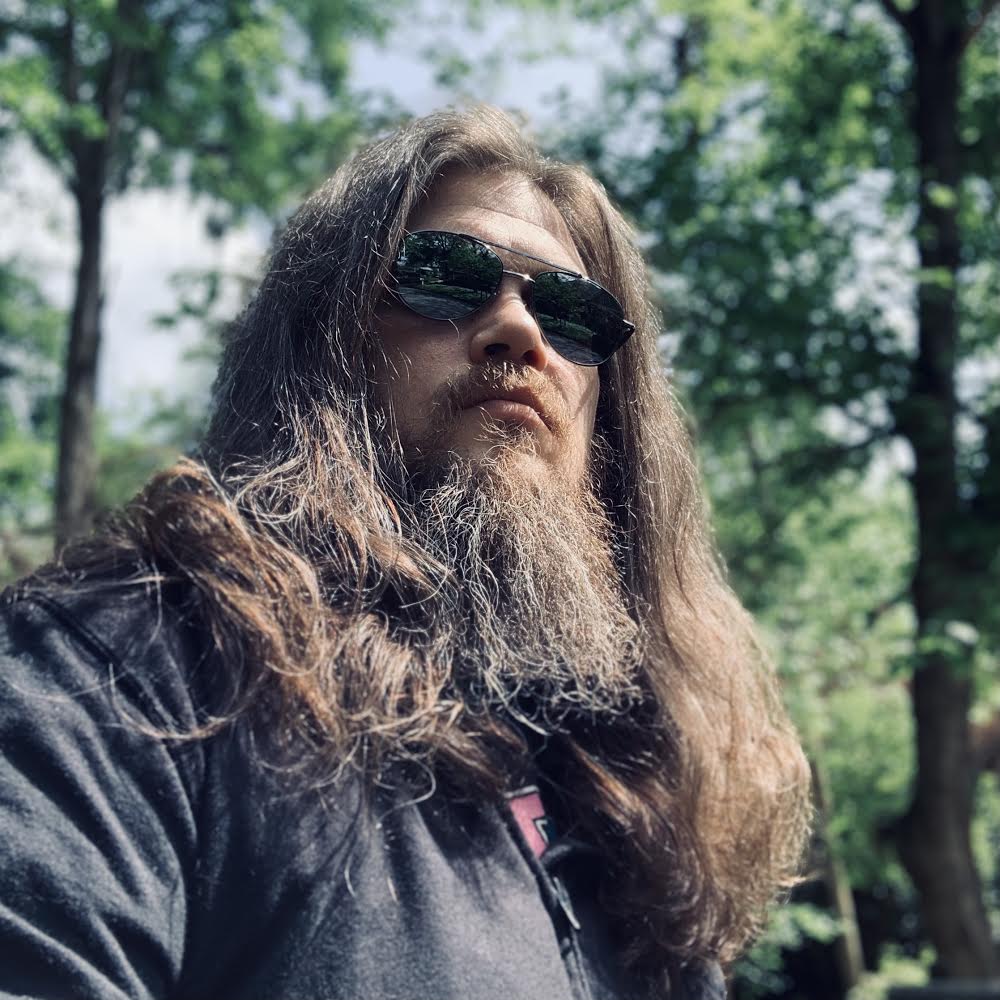These Black superheroes changed the face of comic books
From Lion Man, to Storm, to Black Lighting, Black Panther, and more, these Black superheroes have made a major impact
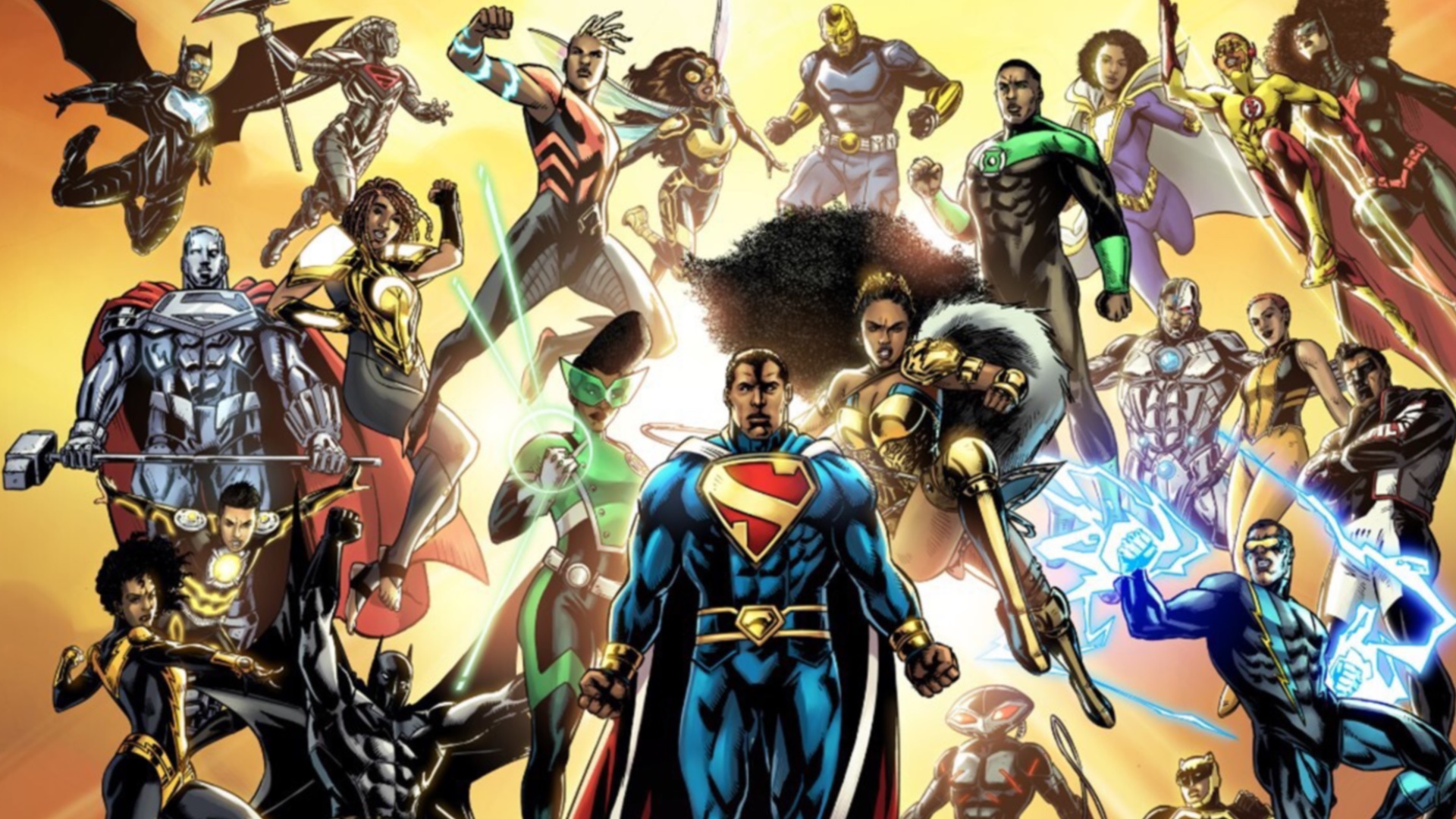
February marks Black History Month in the United States, when we learn about and celebrate the accomplishments of Black people through history - including in the history of comic books.
Both DC and Marvel have several Black History Month-related projects planned for 2022, but we're taking a step back to look at all of superhero comics to find the Black characters who make the biggest mark in the industry.
In celebration of Black History Month, here are the 10 Black superheroes who changed the face of comic books.
Spawn (Al Simmons)
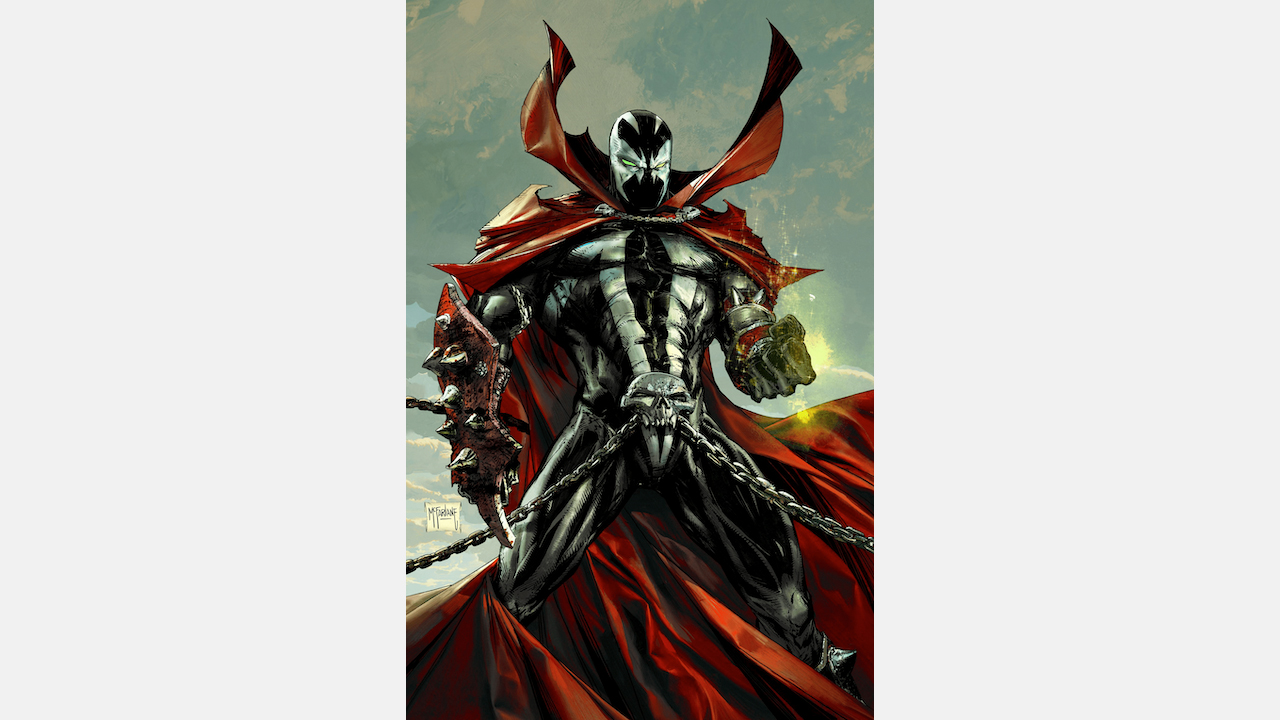
Though the face he's best known for is, like Spider-Man who inspired his look, a full face mask with expressive, oversized eyes, Al Simmons, the original Spawn, was a Black man in life.
Simmons' identity was taken by his deal with the devil, whose magic let him do anything but appear as his true self – a powerful metaphor.
Spawn is notable as a Black superhero for a number of reasons. For one thing, he had a massively successful, huge-selling comic book in the '90s that's still going today. He's also the first Black superhero to headline his own movie, beating Blade to the punch by a year.
Despite his star fading somewhat since his heyday, Spawn is still one of the most recognizable Black heroes – with his mammoth success through Image Comics paving the way for bigger and bigger blockbuster creator-owned titles since.
Comic deals, prizes and latest news
Get the best comic news, insights, opinions, analysis and more!
Monica Rambeau
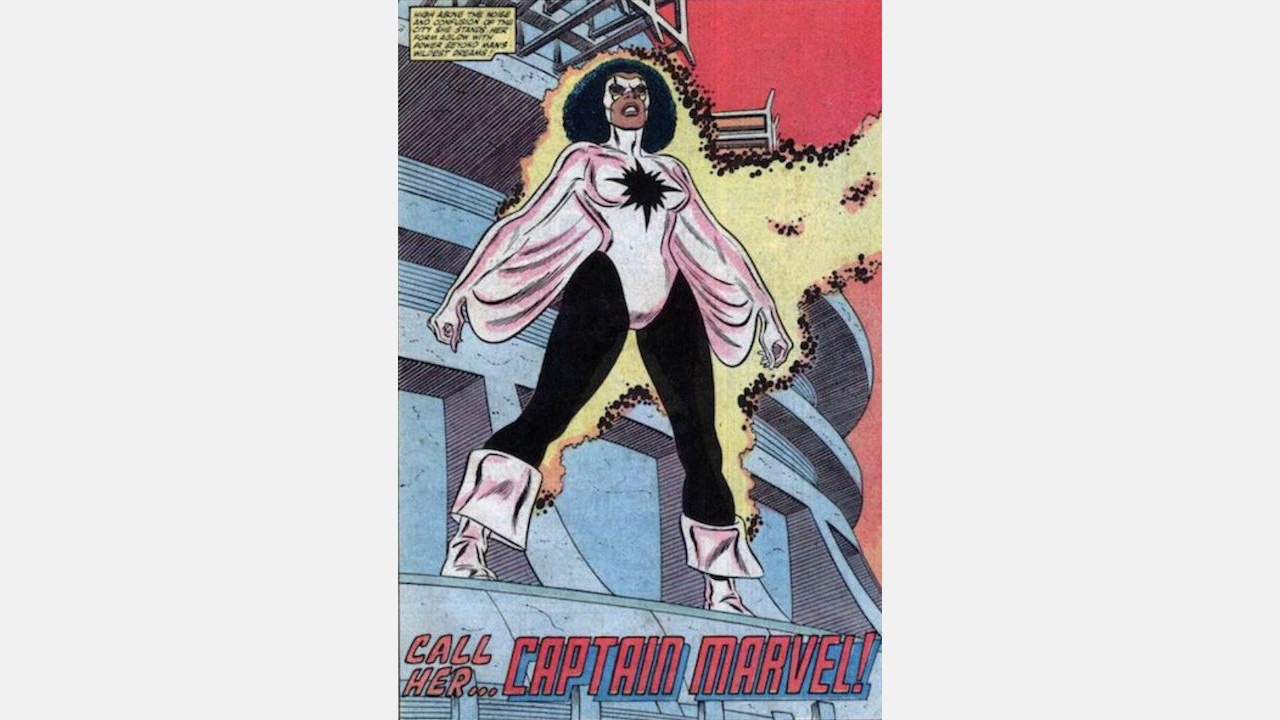
Monica Rambeau may not quite be a household name, but her lofty place in Marvel history distinguishes her as one of the most important Black heroes.
As the successor to Mar-Vell, Monica was the first woman to take the name Captain Marvel. She went on to become an Avenger, even leading the team for years, and was one of Marvel's most iconic heroes in the '80s.
Monica Rambeau remains a supporting character in Marvel Comics. And in the Marvel Cinematic Universe, she'll soon re-appear as one of the lead characters of the film The Marvels alongside Carol Danvers and Kamala Khan.
Green Lantern (John Stewart)
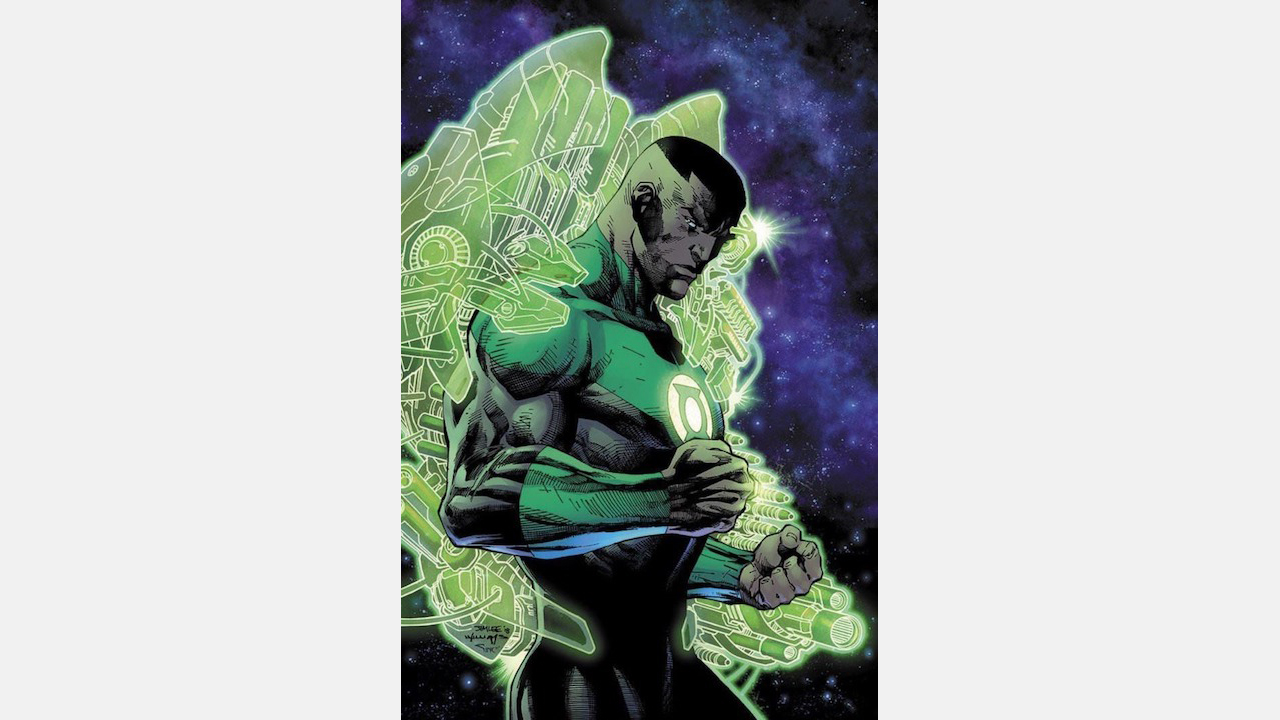
John Stewart is one of several prominent Black superheroes who inherited their codenames from white heroes (think Monica Rambeau/Captain Marvel, James Rhodes/War Machine, Miles Morales/Spider-Man, and more) – in fact, he's largely the hero that kicked off the trend when he became Earth's Green Lantern, replacing Hal Jordan.
Stewart's comic book profile has waxed and waned, but in the public eye, he may be the most popular and well-known Green Lantern, thanks to his fan-favorite role in the Justice League and Justice League Unlimited animated series.
Now back among the Justice League in comic books, he seems to be one of the members of the team who will perish on a mission in space this April in 'Death of the Justice League.'
Static
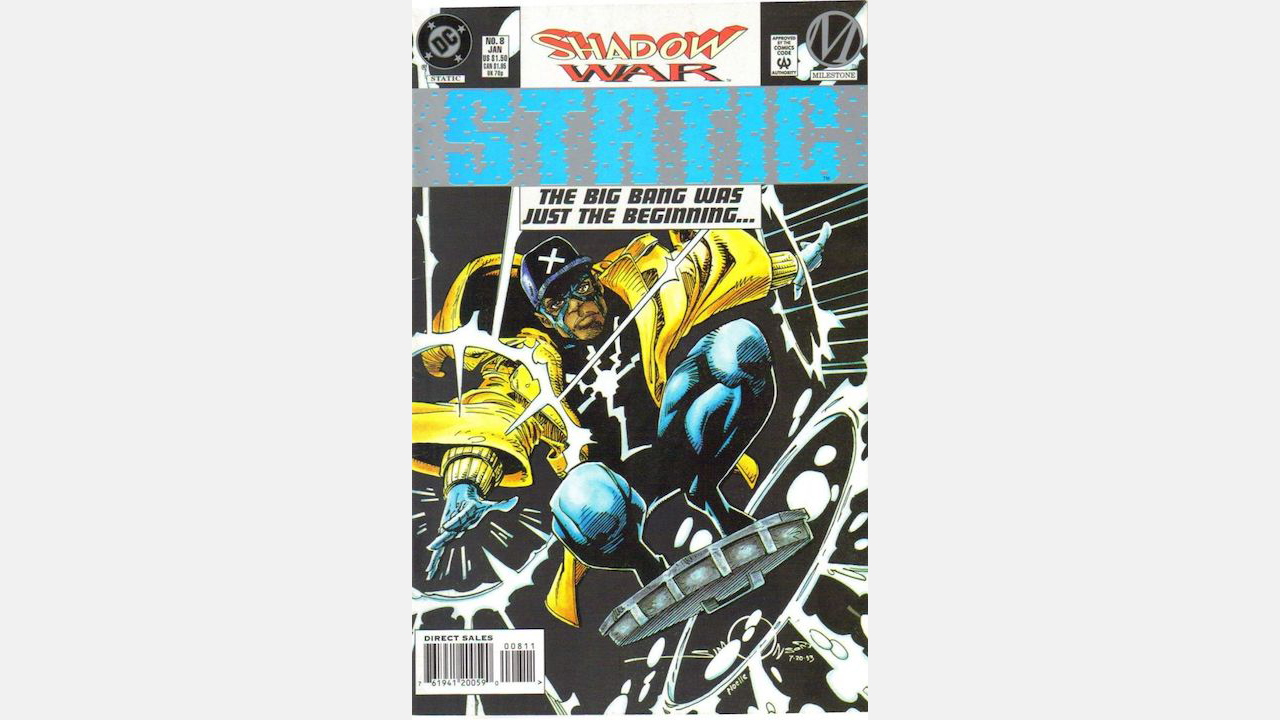
Static is important for being the most prominent character from Milestone Comics, an entire superhero universe piloted by Black creators, with an emphasis on Black heroes who reflected a point of view that was not (and some would say, still is not) adequately being explored in comic books in the '90s.
Static was the breakout star of the Milestone line, which featured dozens of characters, going on to star in his own animated series and play a role in Batman Beyond. When Milestone was incorporated into the DC Universe, Static headlined his own comic book in the core DC timeline as well.
The Milestone line was resurrected in 2021, with Static once again becoming the flagship character to an entire pantheon of diverse superheroes.
Luke Cage

Way before making history as the first Black hero to headline their own project in the Marvel Cinematic Universe (at least on the TV side), Luke Cage was simply a Hero For Hire protecting his neighborhood from super crime.
Though his tiara and "Sweet Christmas!" catchphrase have been a bit of a punchline, even for Luke himself, Cage grew from a man of the people to one of the top Avengers, leading several incarnations of the team and becoming one of Marvel's top heroes in the last decade.
He's also done something very few heroes have been able to do, especially in the Marvel Universe - he's become a father and family man while still kicking ass and taking names.
Through it all, he's remained a cultural icon, even inspiring the stage name of one Nicolas Coppola - better known to the world as Nicolas Cage.
Sam Wilson
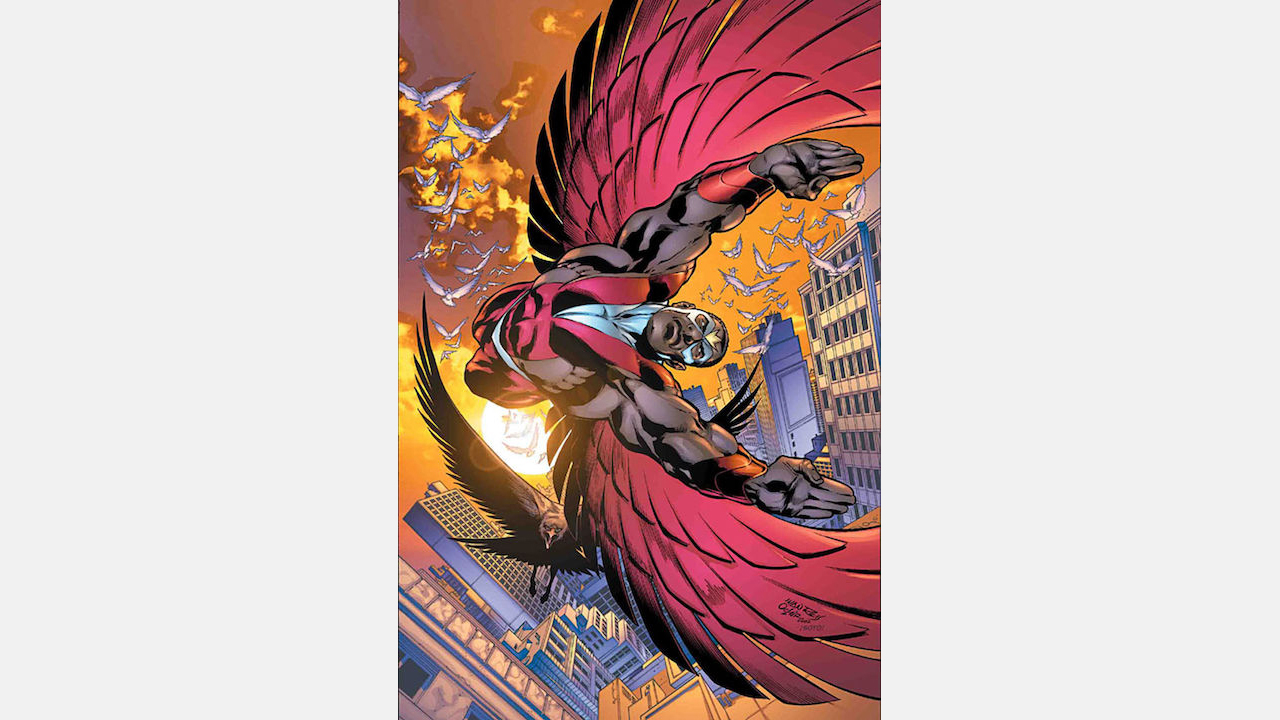
Even before taking on the mantle of Captain America in comic books, Sam Wilson was a historically significant character.
Sam operated alongside the original Captain America (Steve Rogers) for years under the identity of the high-flying Falcon, even joining the Avengers for several long stints. But since Steve's brief retirement led to Sam taking up the iconic shield, he's made even more history.
No, he's not the first Black character to wear the Captain America costume, but he is the first to lead his own Captain America ongoing title. And, in this day and age, there's something incredibly powerful about a Black man serving as a symbol of America - as evidenced by the passionate and often controversial reactions Sam's time as Cap engendered in readers.
Sam Wilson's MCU counterpart has followed in his comic book footsteps, taking up the shield of Captain America at the end of Avengers: Endgame, and finally becoming Captain America in Disney Plus' The Falcon and the Winter Soldier streaming series.
Storm
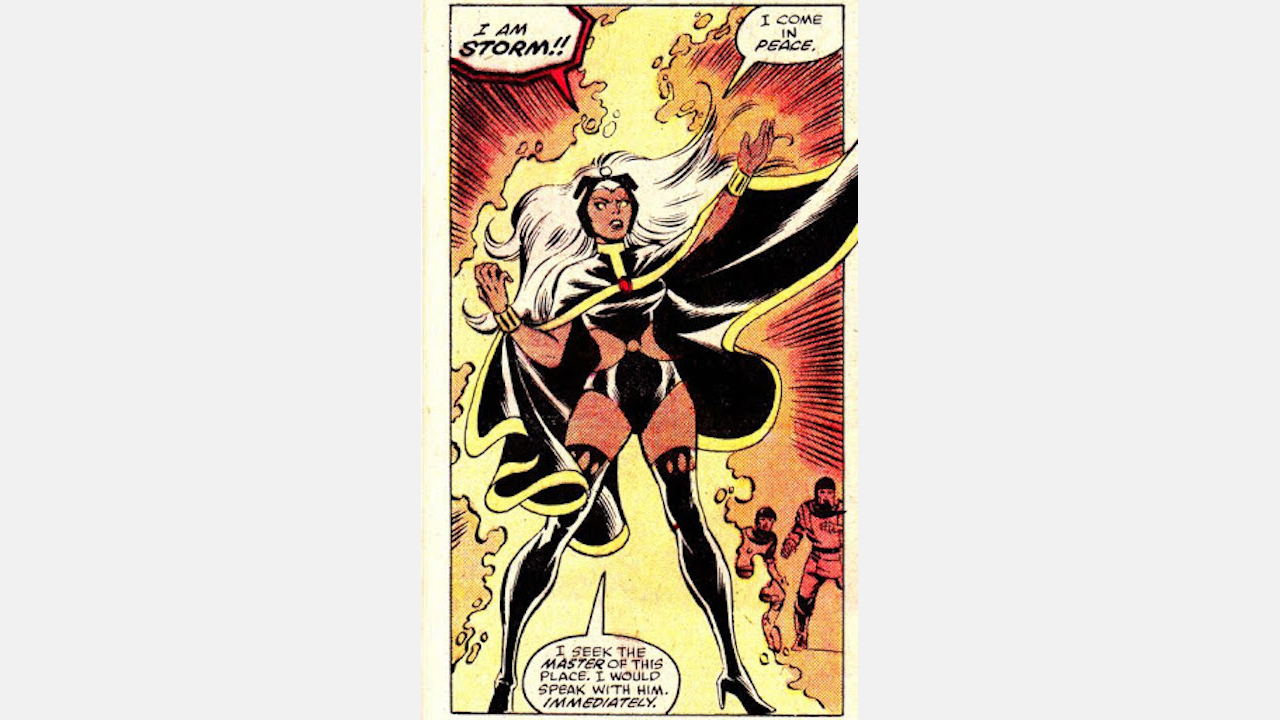
Storm isn't just the first Black member of the X-Men, she's also Marvel's first prominent Black female superhero. Part of the Giant-Sized X-Men line-up that revitalized and reinvigorated the X-Men, Storm is also one of the most enduring members of the team across comic books, animation, movies, and more.
Storm was the first Black woman to join the X-Men. It took the Avengers another decade to catch up, along with the Justice League, who didn't include a Black woman - or any black members - on their roster until Vixen joined in the early '80s.
Now, Storm is regent of Planet Arakko - the leader of the terraformed mutant homeworld created on Mars.
Black Lightning
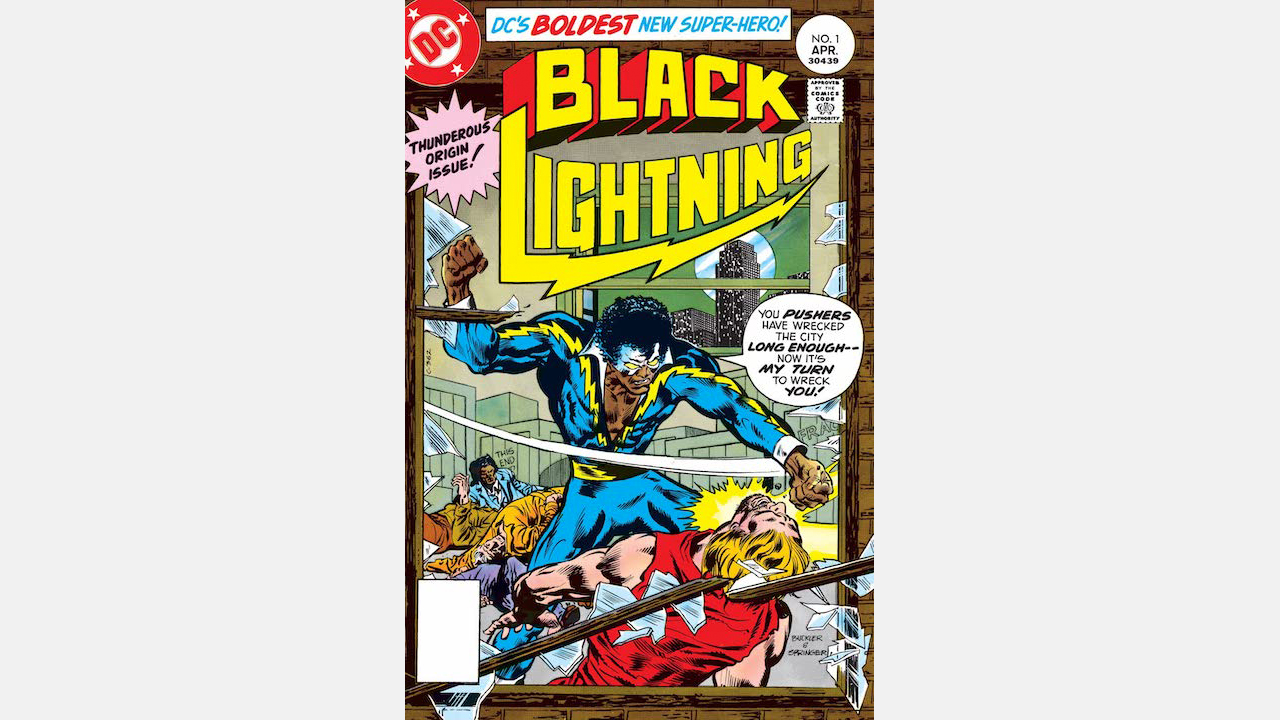
Created by Tony Isabella and Trevor Von Eeden, Black Lightning is the first major Black hero from DC Comics. And unlike many of the other important Black heroes on this list, Jefferson Pierce went straight to leading man, premiering in his own ongoing title.
Jefferson is as interesting out of costume as he is in his trademark blue and yellow suit. As a teacher who moonlights as a superhero, he had a long civilian career, eventually becoming Secretary of Education under none other than President Lex Luthor.
Black Lightning has also been a member of the Justice League, as well as the Outsiders, and in some ways paved the way for Cyborg to become one of DC's top heroes - and a founder of some versions of the Justice League.
Black Lightning also had his own CW TV show for several seasons.
Lion Man
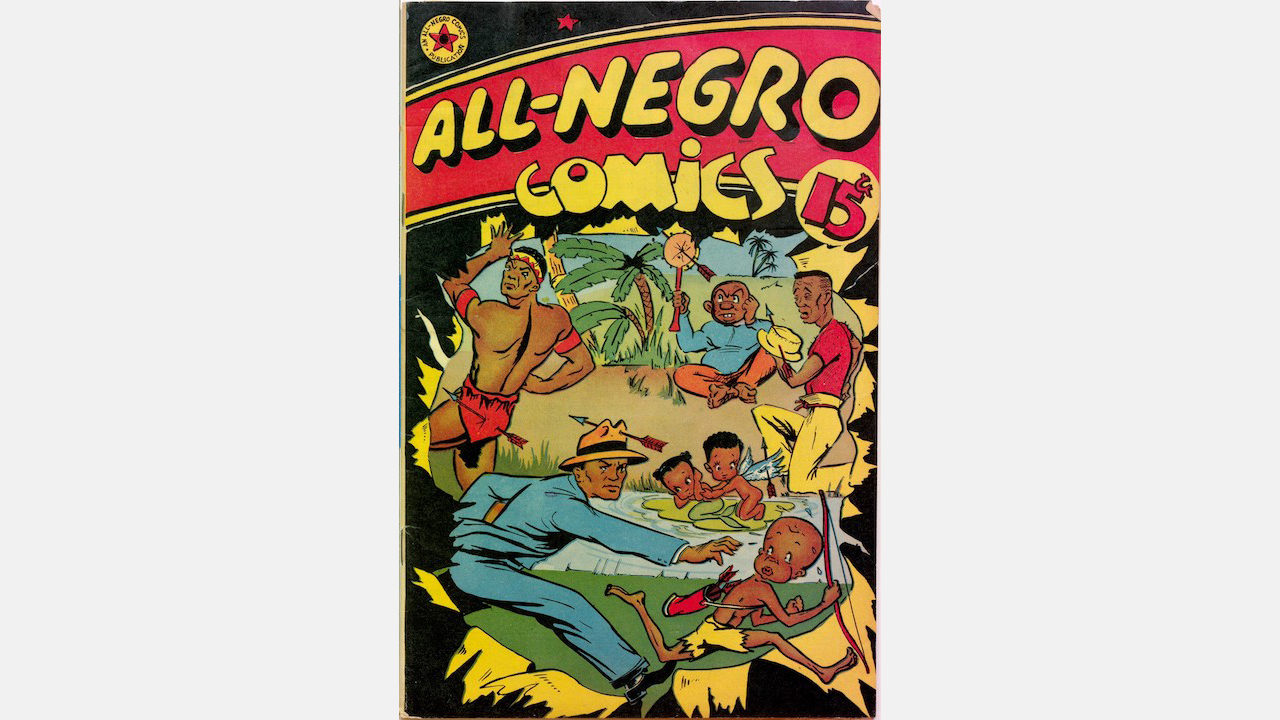
If you're wondering who Lion Man is, you're likely not alone. Though not a household name, Lion Man was the first Black comic book superhero.
Appearing only in the single published issue of All-Negro Comics (the cover of which, seen above, depicts Lion Man on the far left, in the red and yellow headband), Lion Man was co-created by journalist Orrin Evans, his brother George J. Evans, and John Terrell. If his jungle cat motif seems familiar, his origins might too. An American physicist, Lion Man took up his superhero mantle when he was tasked with guarding a giant Uranium deposit in Africa.
All-Negro Comics was unique for being the first comic book known to be created entirely by Black creators with all Black characters. A second issue never hit stands, reportedly because Orrin Evans could not purchase the newsprint required to print the books. Some have speculated that he was blocked from publishing by white-owned competitors, some of whom later began publishing their own Black-themed titles.
Black Panther
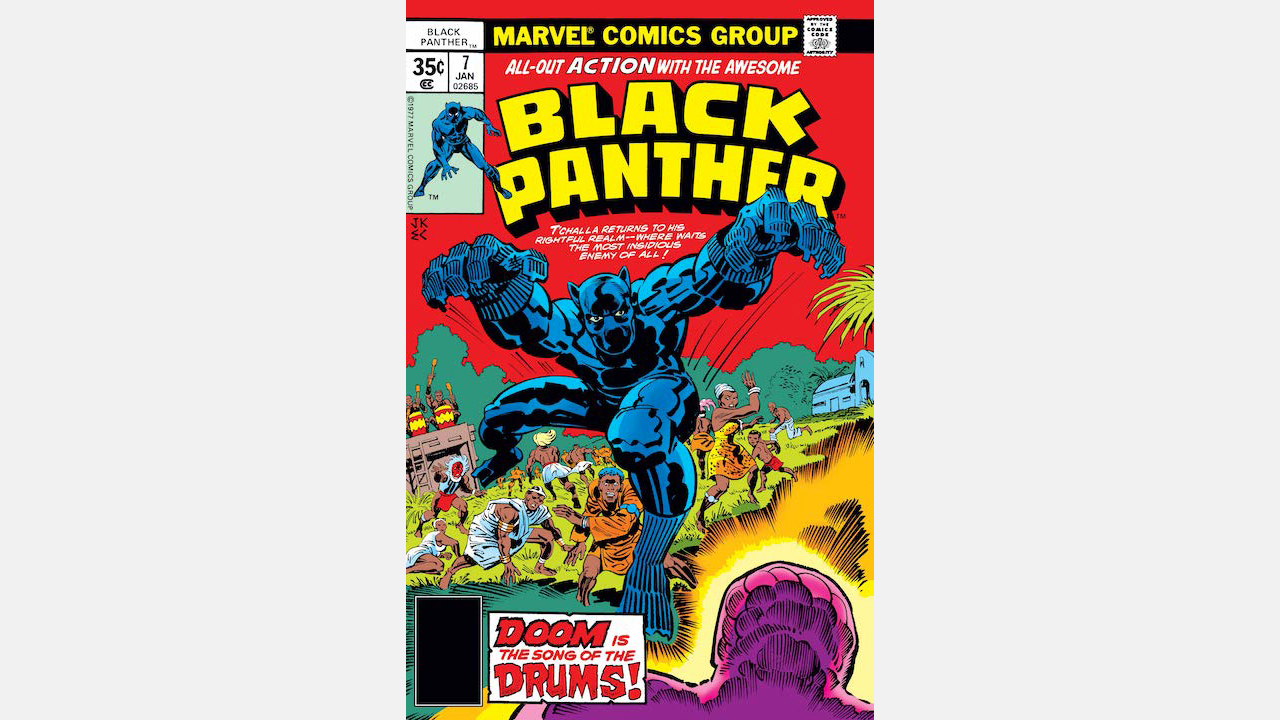
As the first major mainstream Black superhero, it's unquestionable that Black Panther changed the game, and the face of comic books – and years later, he's had a similar impact on comic book movies.
Since his debut, Black Panther has broken boundaries as one of Marvel's first Black leading men, the first Black Avenger, serving as leader of the Fantastic Four, and as one of the smartest, most capable heroes in the Marvel Universe.
Often called "the most dangerous man alive," King T'Challa/Black Panther is the monarch and protector of the ultra-advanced, uncolonized African nation of Wakanda – and one of the MCU's biggest characters, with a record-breaking solo film and subsequent appearances in Avengers: Infinity War and Avengers: Endgame under his belt, and a solo sequel on the way.
I've been Newsarama's resident Marvel Comics expert and general comic book historian since 2011. I've also been the on-site reporter at most major comic conventions such as Comic-Con International: San Diego, New York Comic Con, and C2E2. Outside of comic journalism, I am the artist of many weird pictures, and the guitarist of many heavy riffs. (They/Them)
